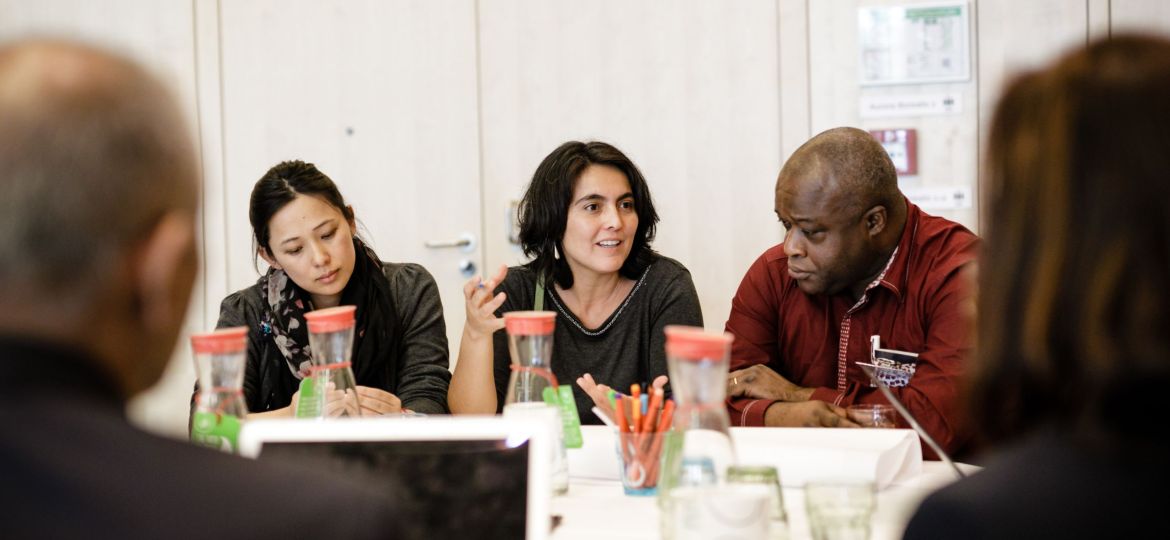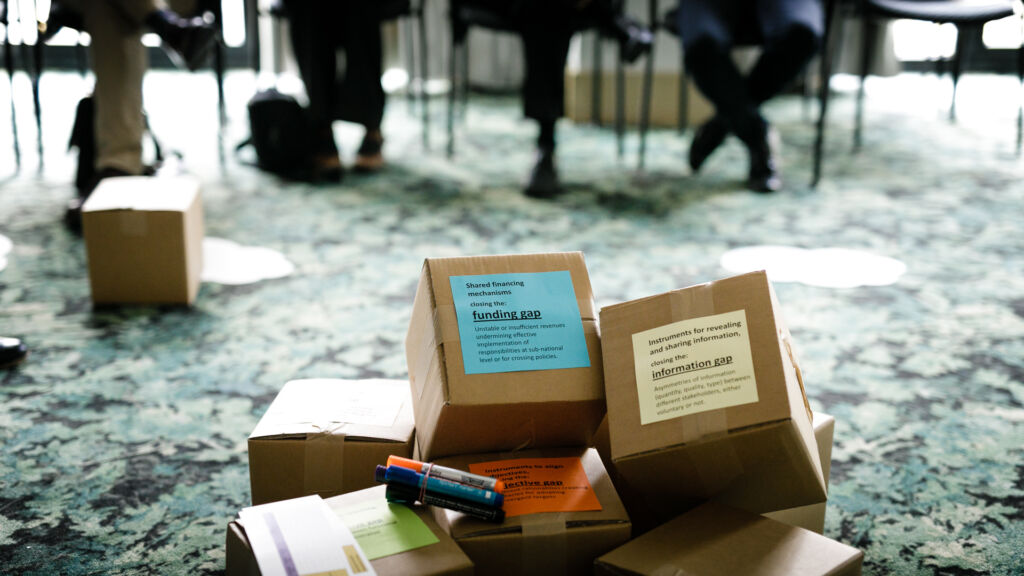
This blog post was originally posted at the International Climate Initiative’s (IKI) website on 4 August 2017.
At the sidelines of the Global NDC Conference, in May 2017 in Berlin, Johanna Arriagada Díaz and Alfonso Galarce from the Climate Change Division in the Ministry of the Environment in Chile talked about the development in Chile since the Paris Agreement. They explain how the creation of new structures supports the implementation of Chile’s Nationally Determined Contribution (NDCs) and how the introduction of a carbon tax motivates the private sector to engage in mitigation actions.
Since the decisions were reached at COP21, what has been happening in Chile with regard to implementing the NDCs? What main steps have been taken?
ALFONSO GALARCE: On 12 April the President of Chile enacted the Paris Agreement, which had already been approved in February this year. In addition, the Government established the Sustainability and Climate Change Agency.
JOHANNA ARRIAGADA DÍAZ: Another important step was the creation of the Climate Change Division within the Ministry of Environment. Transforming what was the Department of Climate Change into a new Climate Change Division moved the issue to a higher level. The Division has three departments: one on mitigation, one on adaptation, and one on climate financing and negotiations. We have also made progress on setting up Chile’s subnational climate change institutions. In three of the country’s 15 regions we now have regional climate change committees in place.
Have the regions already defined their own targets and activities for implementing the NDCs?
ALFONSO GALARCE: The process of drawing up specific plans for regional action has just started. Regional committees are defining policies and planning how to implement different projects at the subnational level. This is where the Sustainability and Climate Change Agency comes into play. Drawing on the work of a predecessor agency, this new agency supports interaction between private firms, communities and the public sector, and is tasked with fostering technology transformation in small companies and private firms.
Does the agency work directly with companies or with private sector associations?
ALFONSO GALARCE: With both. The Agency works directly with companies and with associations. The Agency also knows how to operate in the regions. This knowledge is very valuable for us in the ministries because, although we draw up all the national policies, we do not have much experience of working directly with communities in the regions. Exchange with the Agency is very important for implementing the NDC.

How interested is the private sector in contributing to NDC implementation and taking on responsibilities?
ALFONSO GALARCE: The Chilean Government recently implemented a tax reform that included the introduction of a carbon tax. This reform has increased private sector interest in this area because, now, companies are required to pay not only for their CO2 emissions, but also for their local pollutant emissions, which includes particulate matter, SO2 and NOx This innovation is beneficial as it links both global emissions and local emissions, which means the tax focuses on the main polluters. They will start declaring their emissions this year and, from next year onwards, will have to pay the tax. The carbon tax is changing their minds about the need to reduce their CO2 emissions.
The carbon tax is also linked to energy policy. Throughout 2016 the government reworked its energy policies and developed the Energía 2050 agenda, which sets the rules for the energy sector and promotes the expansion of renewable energy. Chile is now aiming for a share of 20% of renewable energy in the energy mix by 2020 and 70% by 2050. Energy prices, in the last energy auction called by the government, in November 2016, fell sharply, with a 63% drop in prices, where solar plants offered the lowest prices. The introduction of a carbon tax contributed to give a strong signal to the market about carbon pricing.
The Global NDC Conference 2017 was a joint effort then hosted by the International Climate Initiative (IKI) at the then German Federal Ministry for the Environment, Nature Conservation, Building and Nuclear Safety (BMUB), organised by the Deutsche Gesellschaft für Internationale Zusammenarbeit (GIZ) GmbH, the then Low Emissions Development Strategies Global Partnership (LEDS GP), the United Nations Development Programme (UNDP), in cooperation with the NDC Partnership.
For more details check out the Conference report 2017.


